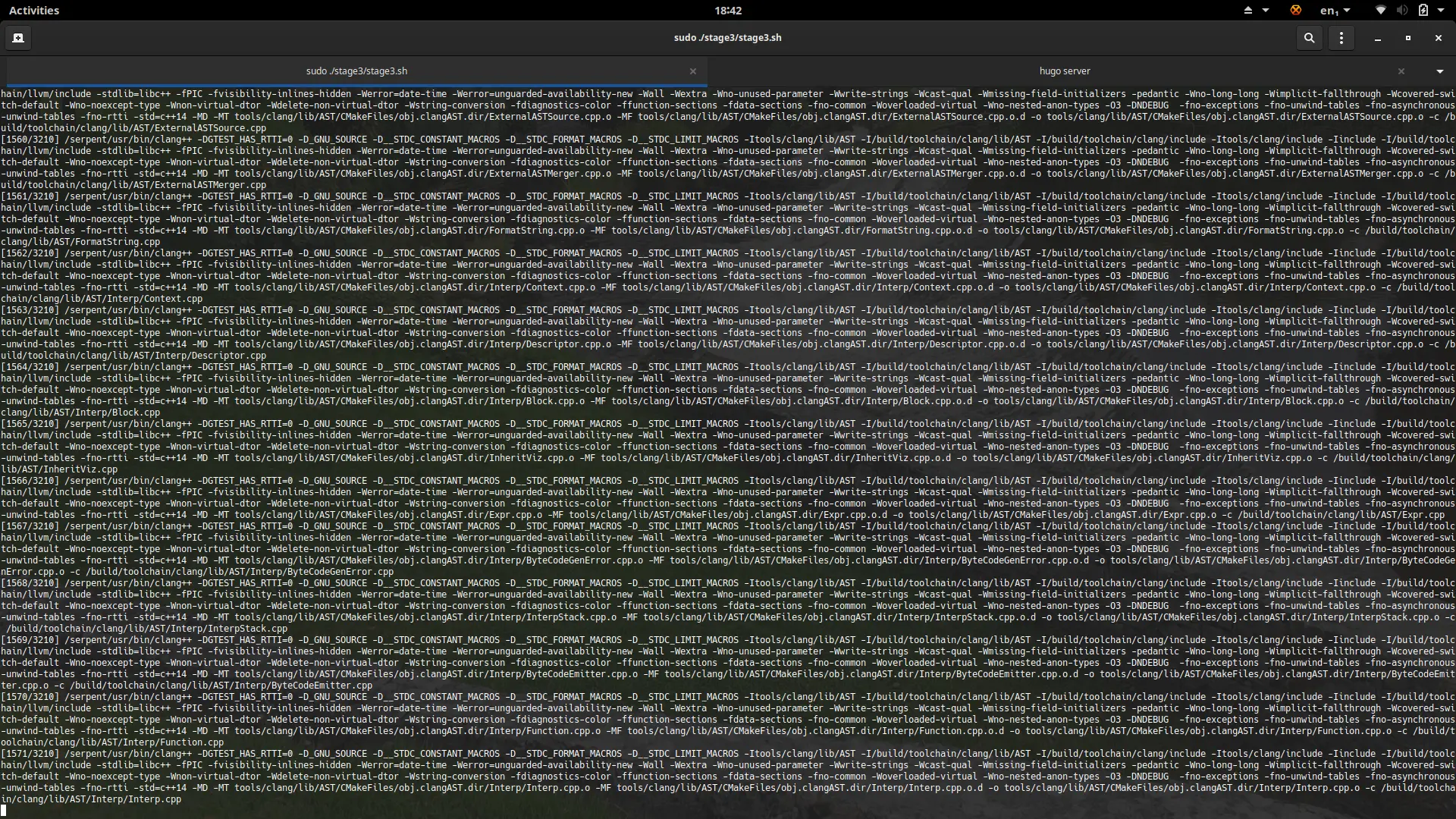Stage3 Complete
Categories:
Another week, another milestone completed. We’re pleased to announce that we’ve completed the initial Stage3 bootstrap. While we have some parallel works to complete for Stage 4, we can now begin to work on the exciting pieces! We’re now bootstrapped on ARMv8(-a) and x86_64

Announcing Moss
Our immediate focus is now to implement our package manager: moss. Currently it only has a trivial CLI and does absolutely nothing. We will now shift our attention to implement this as a core part of the Stage 4 bootstrap. Moss is so-called as we’re a rolling release, a rolling stone gathers no moss. The package manager is being implemented in the D Programming Language.
Moss does not aim to be a next generation package management solution, it instead inspired by eopkg, RPM and swupd, aiming to provide a reliable modern package management and update solution with stateless design at the core. Core features and automatic dependencies will be managed through capability subscriptions. The binary format will be versioned and deduplicated, with multiple internal lookup tables and checksums. Our chief focus with moss is a reliable system management tool that is accessible even in situations where internet access is limited.
Ongoing Works
In order to complete stage3, we provided linker stubs in libwildebeest to ensure
we can build. Obviously this introduces runtime errors in systemd and our stage3 isn’t
bootable, just chrootable. This will be resolved when systemd is properly packaged by
moss in stage4.
Docker Image
We now have a test container available on Docker Hub. You can install and run the simple bash environment by executing the following command with a Docker-enabled user:
docker run -it --rm serpentos/staging:latest
Currently we only have an x86_64 image, but may experiment with multiarch builds later in stage4.
IMPORTANT: The staging image is currently only a dump of the stage3 tree with
minor cleaning + tweakups. It is not, in any way, shape or form, representative of
the final quality of Serpent OS. Additionally zero performance work or security
patching has been done, so do not use in a production environment.
The image is provided currently as a means to validate the LLVM/musl toolchain.
Future ISO
We cannot currently say when we’ll definitely have an ISO, however we do know that some VM-specific images will arrive first. After that we’ll focus on an installer (package selection based) and a default developer experience. All we can say is strap in, and enjoy the ride.